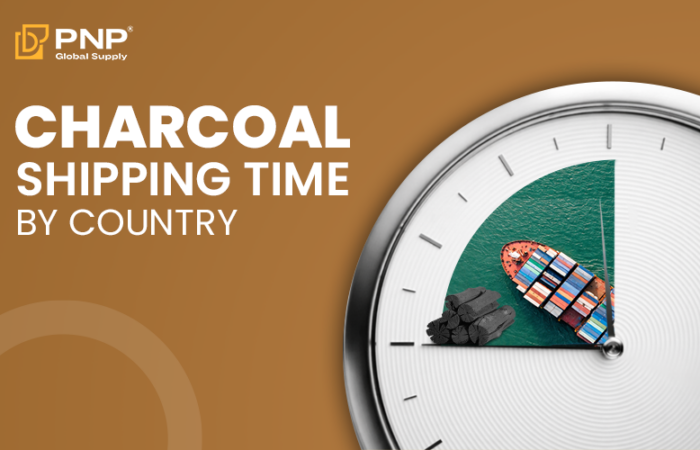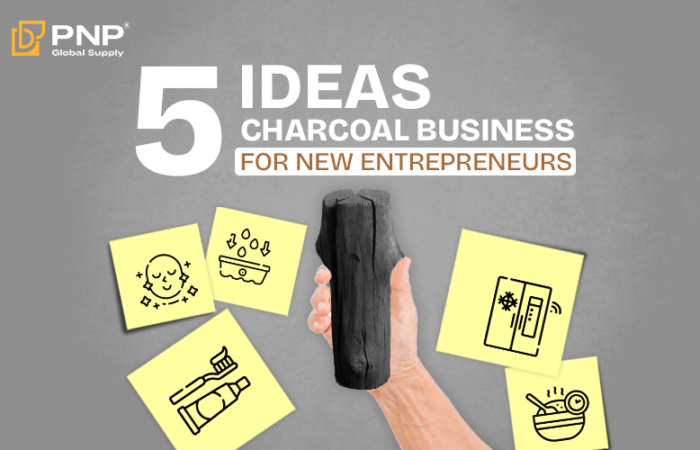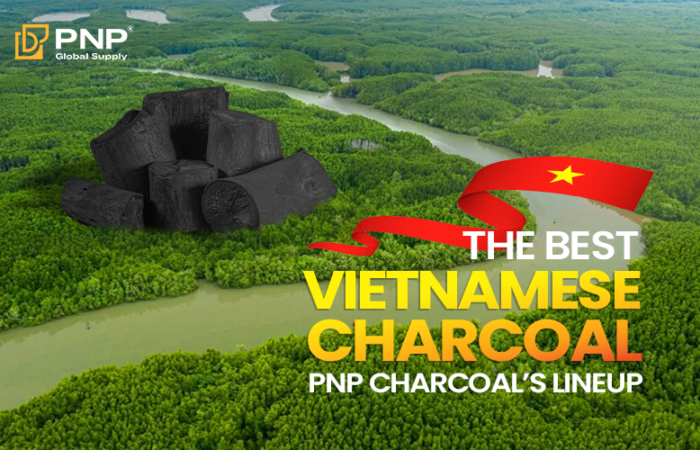Importing charcoal can be a profitable business, but the success of each shipment largely depends on how efficiently you manage your import costs. From packaging methods to choosing the right export port, even small decisions can make a significant difference in overall expenses. For charcoal importers who want to remain competitive in a growing global market, understanding how to optimize each stage of the import process is essential.
In this guide, we’ll explore practical strategies to reduce charcoal import costs — covering everything from packaging options and port selection to supplier cooperation and shipping efficiency.

Understanding the Key Factors Affecting Charcoal Import Costs
Before identifying ways to save money, it’s important to understand what drives the total charcoal costs.
The first factor is the charcoal price per ton, which depends on the type and quality of charcoal you’re importing. High-grade varieties like Mangrove charcoal, Coffee charcoal, and Coconut shell charcoal generally cost more but deliver better performance in terms of heat and burn time. While these premium types have higher upfront costs, they can actually reduce long-term expenses by burning longer and more efficiently.
The second factor involves freight and logistics fees. Shipping rates, port handling charges, and container storage costs can all add up. For importers bringing in large quantities, even a small adjustment in packaging or port selection can lead to significant savings.
Another often-overlooked factor is packaging. How the charcoal is packed—whether in jumbo bags, small paper bags, or bulk-loaded—can impact the shipping weight and the number of tons that fit in a container.
Finally, the reliability of your charcoal suppliers plays a major role. Partnering with experienced and trustworthy suppliers helps minimize hidden costs, such as delays, product rejections, or inconsistent quality.
Choosing the Right Packaging to Save Costs
Packaging is more than just presentation—it directly affects your import costs. The type, size, and material of the packaging determine how much charcoal can fit in a container, how well it’s protected during transit, and how easy it is to handle at the destination port.
For charcoal importers, the most common options include:
- Jumbo bags (big bags): These large bags can hold up to 800–1000 kg each. They’re ideal for bulk orders and reduce packaging material costs. Jumbo bags also maximize space in containers, helping you ship more charcoal per load and lower your charcoal costs.
- 20 kg PP bags: A popular choice for retail-ready shipments. They are durable, water-resistant, and allow flexible stacking. However, they may take up more space and increase handling costs.
- Paper bags: Often used for high-end BBQ charcoal brands. They look premium but can be more expensive and less moisture-resistant.
- Bulk loading: The most cost-saving method when permitted, as it removes packaging completely. However, it requires careful coordination with customs and port regulations.
To balance cost and quality, many importers choose to use PP bags without pallets—saving both space and weight. This approach can reduce import costs by up to 10–15%, depending on shipment size and destination.
If you want to learn more about standard charcoal export packaging, check out the article below: What is the suitable kg charcoal BBQ packaging weight for export?
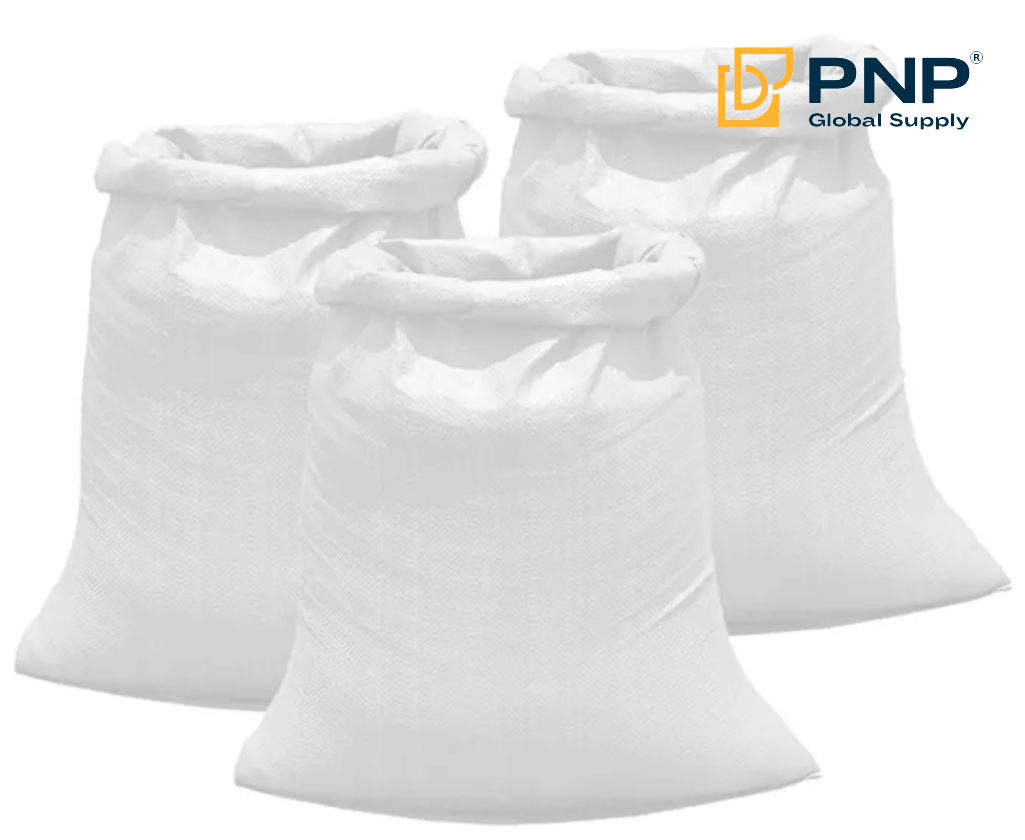
Selecting the Most Suitable Export Port
Choosing the right port of export is one of the smartest ways to lower charcoal import costs.
Vietnam, one of the leading charcoal exporters, has several major ports including Cat Lai (Ho Chi Minh City), Cai Mep (Ba Ria–Vung Tau), Quy Nhon, and Hai Phong. Each port has different fees, transit times, and logistics advantages.
- For shipments to the Middle East or Europe, exporting from Cat Lai or Cai Mep is often more cost-efficient because of frequent vessel schedules and larger container handling capacity.
- For shipments to East Asia or regional destinations, Quy Nhon and Hai Phong may offer lower inland transportation costs if the charcoal factory is nearby.
Working closely with your charcoal suppliers to choose the nearest and most efficient port can save both time and money. The key is to minimize domestic transportation distance from factory to port—reducing local fuel costs and export handling fees.
Working with Reliable Charcoal Suppliers
A trusted charcoal supplier doesn’t just provide quality products—they help you manage your entire import process more efficiently.
Reliable suppliers ensure consistent charcoal price per ton, reducing risks of market fluctuation and product rejection. They can also assist with export documentation, fumigation, and certificate of origin preparation—saving you both administrative costs and delays.
When evaluating charcoal suppliers, look for those who:
- Have proven export experience and compliance with international standards.
- Offer various packaging options and flexible delivery terms (FOB, CIF, etc.).
- Maintain transparent communication about production capacity and lead time.
For example, suppliers like PNP Charcoal in Vietnam work directly with factories, ensuring competitive charcoal costs and reliable quality. Partnering with such suppliers gives importers confidence in long-term cooperation while minimizing risks of hidden expenses.
Optimize Shipping and Container Utilization
Efficient container loading is another effective way to cut import costs. Every inch of space inside a container counts—unused gaps mean you’re paying for air instead of charcoal.
Here are a few proven methods to optimize shipping efficiency:
- Use space-smart packaging: Choose bag sizes that stack neatly inside 20ft or 40ft containers.
- Consider full container load (FCL): It’s usually more economical than smaller consolidated shipments.
- Avoid unnecessary pallets: While pallets make unloading easier, they consume valuable space and add extra weight.
- Choose 40ft containers for large orders: They offer better cost efficiency per ton compared to 20ft containers.
By focusing on smart loading, importers can transport more tons of charcoal per shipment, effectively lowering the average charcoal price per ton and reducing freight expenses.
Practical Tips for Charcoal Importers
For charcoal importers aiming to maximize profit margins, here are a few additional strategies to keep in mind:
- Buy during low-demand seasons. Charcoal prices often drop after summer, allowing better deals per ton.
- Negotiate long-term contracts. Stable volume commitments often lead to lower charcoal costs.
- Compare freight forwarders. Different logistics partners offer varied rates and terms—shop around for the best value.
- Monitor fuel and shipping rate trends. These directly influence import costs, so staying updated helps you time shipments wisely.
With these practices, importers can not only reduce expenses but also gain a more predictable cost structure for long-term business growth.7. Where to Find Trusted Charcoal Suppliers in Vietnam
Vietnam has become one of the most reliable sources for charcoal suppliers, thanks to its abundant raw materials and skilled production. When sourcing, consider the following points:
- Experience and certification: Ensure suppliers are experienced in exporting to your destination and can provide necessary documents like CO, MSDS, and test reports.
- Product variety: Look for suppliers offering diverse charcoal types such as Mangrove charcoal, Eucalyptus charcoal, and Coffee charcoal, each with different heat values and charcoal costs.
- Service and flexibility: The best suppliers will offer guidance on choosing the right port, packaging type, and container optimization to lower import costs.
Collaborating with professional suppliers helps you streamline the process of import charcoal and maintain competitive pricing in your market.
PNP Charcoal is one of Vietnam’s trusted charcoal exporters, providing high-quality products such as Mangrove charcoal, Eucalyptus charcoal, Coffee charcoal, and Coconut shell charcoal for BBQ and industrial use. With years of export experience and strict quality control, PNP Charcoal ensures consistent performance, competitive prices, and professional support for every order.
Visit PNP Charcoal to explore our full product range and learn more about our export services.
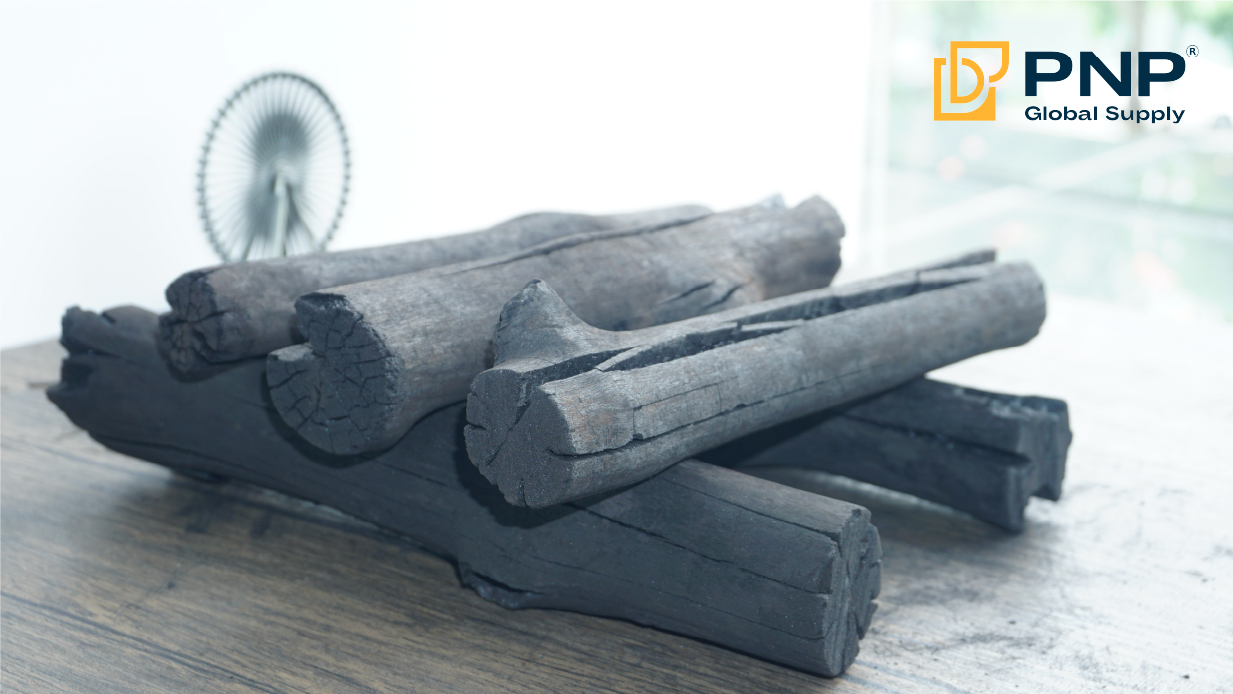
Conclusion
Reducing charcoal import costs isn’t just about getting a cheaper price—it’s about smart planning, efficient logistics, and strong supplier relationships. By choosing suitable packaging, selecting the most convenient export port, and working closely with reliable charcoal suppliers, importers can significantly reduce unnecessary expenses.
Every decision, from how you pack your charcoal to which port you ship from, can shape your bottom line. For charcoal importers looking to expand sustainably, optimizing these factors is the best way to stay competitive in the global market.
Work with experienced Vietnamese charcoal suppliers today to optimize your import costs and secure the best charcoal price per ton for your next shipment.
________________________________
Contact us for more information
Facebook: PNP Charcoal
Instagram: PNP Charcoal
Email: info@pnpglobalsupply.com

